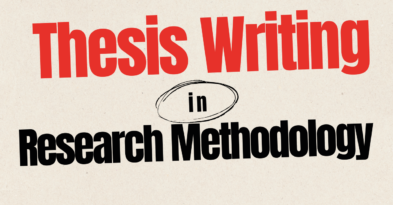19Feb

Embarking on a PhD journey is an exciting and challenging experience. One of the first and most critical steps is to Develop a PhD Research Plan. A well-structured research plan not only guides your research process but also helps you stay focused and organized throughout your academic journey. In this detailed guide, we will explore the essential steps to Develop a PhD Research Plan, ensuring you lay a strong foundation for success.

Before you start planning, gain a thorough understanding of your research field. Review existing literature, identify knowledge gaps, and explore current trends to ensure your research is relevant and valuable. A comprehensive literature review will help you avoid redundant research and refine your research focus.
A clear research problem is the foundation of your research plan. Formulate a specific and researchable problem statement that addresses a gap in the literature and aligns with your academic interests. Your problem statement should be concise yet detailed, outlining the significance of the problem and its potential impact on your field.
Outline your research objectives and develop research questions that will guide your investigation. Your objectives should be SMART (Specific, Measurable, Achievable, Relevant, and Time-bound). Well-defined objectives not only keep your research on track but also provide a clear benchmark to measure your progress.
Choose an appropriate research methodology (quantitative, qualitative, or mixed methods) based on your research problem and objectives. Define your data collection methods, sampling techniques, and analysis strategies. Be specific about the tools and techniques you will use, such as surveys, interviews, experiments, or data analysis software. A well-thought-out methodology increases the credibility of your research.
Create a realistic timeline that breaks down your research activities into manageable phases. This timeline will help you track progress and ensure timely completion of your research. Include milestones for literature review, data collection, analysis, and writing. A Gantt chart or project management tool can be helpful in visualizing your timeline.
Identify the resources you need, including software, equipment, funding, and academic support. Plan how to acquire and utilize these resources effectively. Consider applying for grants, utilizing university resources, or collaborating with other researchers to access necessary tools and support.
Ensure your research adheres to ethical standards. Obtain necessary approvals, protect participant confidentiality, and maintain research integrity. Familiarize yourself with institutional and legal ethical guidelines to avoid potential issues during your research.
Anticipate potential obstacles and develop contingency plans. Being prepared for challenges such as data access issues, research delays, or unexpected results will help you stay resilient. Regularly reassess risks and adjust your plan accordingly.
Regularly review your research plan and make adjustments as needed. Seek feedback from your supervisor and peers to enhance the quality of your plan. A flexible approach allows you to refine your plan based on new insights or changes in your research environment.
A well-structured PhD research plan is your roadmap to academic success. By following these detailed steps to Develop a PhD Research Plan, you can create a clear and effective plan that will guide you through the complexities of your research journey. Stay focused, be adaptable, and remember that when you Develop a PhD Research Plan thoughtfully, it sets the stage for impactful and meaningful contributions to your field.
Kenfra Research understands the challenges faced by PhD scholars and offers tailored solutions to support your academic goals. From topic selection to advanced plagiarism checking.

Thesis writing is an integral part of any academic journey, particularly for PhD and master's students. It is a... read more

Publishing research is a crucial part of academic life for every scholar. However, the rise of predatory publishing has created... read more

When pursuing a PhD in India, one of the crucial aspects that aspiring doctoral candidates need to understand is... read more

How to Write Effective Research Papers: Addressing Common Issues Key Practices for Effective Research Paper WritingIn the realm of... read more

Writing a PhD thesis can feel like navigating a labyrinth. From formulating a research question to handing in a... read more

Guru Gobind Singh Indraprastha University PhD admissions 2024 is calling all aspiring researchers to apply for its PhD program for... read more
Transforming engineering design with GenAI "Transforming engineering design with GenAI" signifies the integration of artificial intelligence (AI), specifically generated intelligence (GenAI),... read more

Doing a PhD is exciting, but let's be honest, it can also feel overwhelming. You’re learning new theories, reading hundreds... read more
WhatsApp us
Leave a Reply